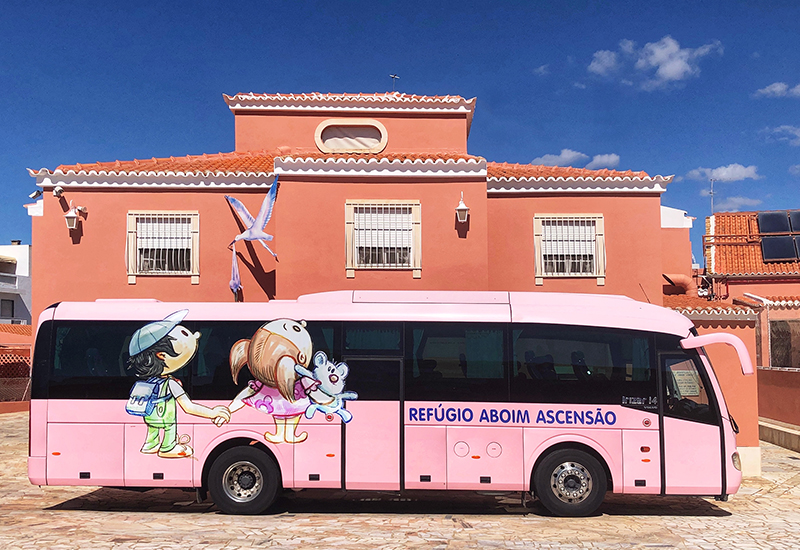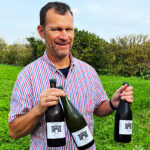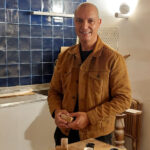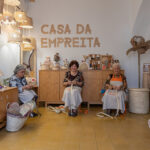Located in the heart of Faro, the Refúgio Aboim Ascensão provides temporary shelter for up to 95 children, many of whom have been abandoned, neglected, and, in some cases, abused. Vaughan Willmore went to find out more.
“I’ve been here for 13 years,” said Dr Carla Pargana with a smile. “Which means I’m very much the new girl!” And how true that is. During my tour of the refúgio, I was introduced to staff who’ve worked there for 20 years and more, including one gentleman who has been there for 30 years. Why do they stay so long? It’s simple: the Refúgio Aboim Ascensão is a very special place.
All the children at the refúgio have had a difficult start to their lives, so it would be natural to expect a visit there to be something of a chastening experience. Nothing could be further from the truth. I found my own visit life-affirming. It was a chance to witness the fantastic work of the staff and to see how well looked after the children are. A sense of optimism runs through everything they do, fuelled by the belief that, before too long, the children will find permanent loving homes.
Dr Carla and I first met in July at the charity dinner of the Sir Bobby Robson Golf Celebrity Golf Tournament, an annual event from which all proceeds are donated to the refúgio. She’s a very impressive lady, originally starting her working life in banking before joining the refúgio as finance director in July 2010. She was promoted to executive director in June of this year.
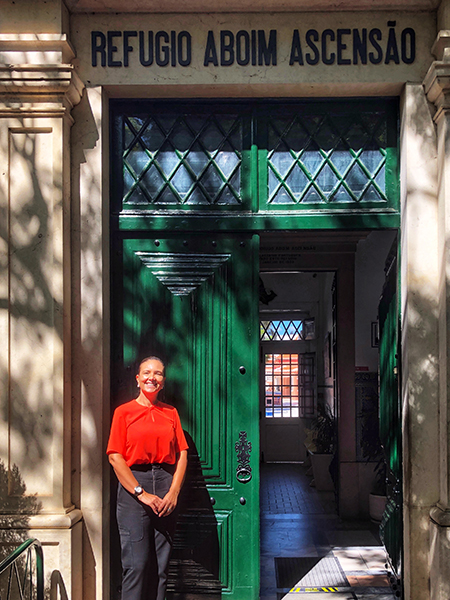
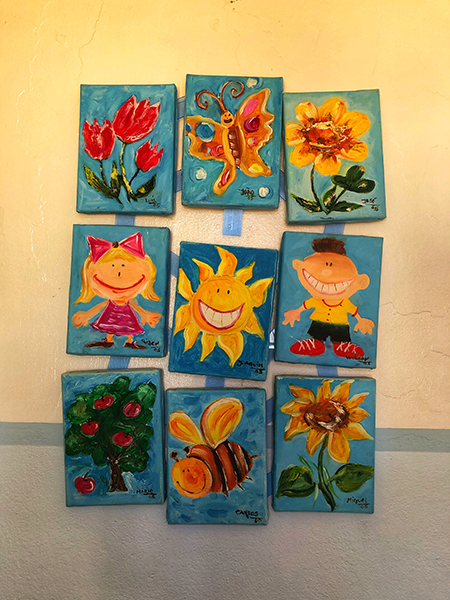
We met in the refúgio’s main boardroom. Its oak panelling, and the paintings and photographs of people who’ve made a noticeable contribution to the work of the refuge, provides a real sense of its history and the vision of the man who made it all possible: Rodrigo Aboim Ascensão. Born in Faro in 1859, Rodrigo Aboim Ascensão dedicated his life to improving the lives of young children. Although he lived most of his adult life in Lisbon, he was committed to helping the children and families of his birthplace, hence purchasing the land on which the children´s home is built. It wouldn’t be until many years later, however, that his dream would be realised when his nephew Manuel Aboim Ascensão de Sande Lemos oversaw the construction of the first building and community help centre. Initially, it served as a milk dispensary, providing assistance to single mothers. In the years that followed, it began providing medical care for newborn and premature babies.
The next major development came in 1985, thanks to a chance visit by Dr Luís Villas-Boas. As Dr Carla told me, “Dr Luís Villas-Boas only intended to visit the refúgio for a day. Now, 40 years later, he’s still here, providing wisdom and help to staff and children.” Thanks to the leadership and hard work of Dr Luis and his colleagues, the building has been transformed into a welcoming temporary shelter for up to 95 children aged from three days old to eight years of age.
Children arrive from all over Portugal, not solely from Faro or the Algarve, and stay for between six to nine months. The aim is to reunite the children with their families, but if this proves impossible, the staff work with social services to find them adoptive parents. Over 3,500 children have been helped since 1985.
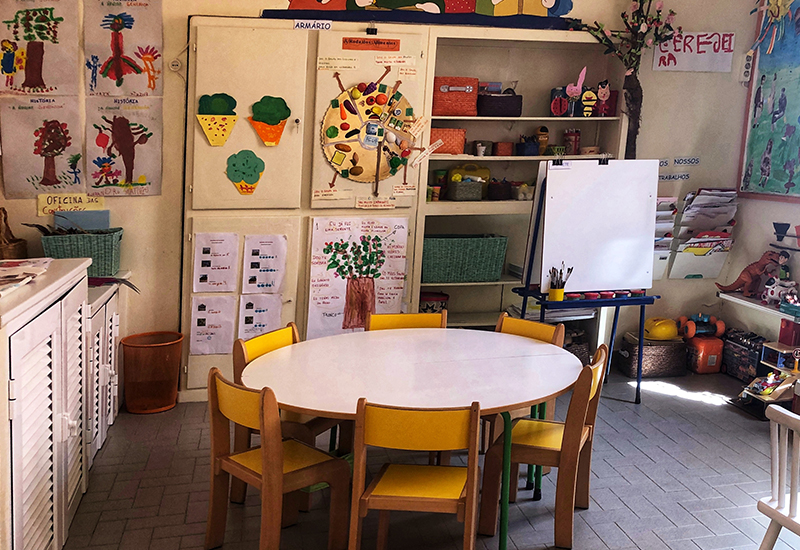
My tour of the refúgio took in the lovely courtyard, where I was greeted by the laughter of 30 excited children. We visited the restaurant – where all the staff and children eat together – the classrooms, bedrooms and the hydrotherapy pool.
Understandably, given the funding challenges, the rooms are a little functional in places, but they’re well maintained and spotlessly clean. I had the privilege of meeting the youngest child currently in residence, a three-month-old baby girl who was referred from Faro hospital when she was just nine days old.
It costs three million euros a year to run the centre, of which 50% is provided by the state, with the balance made up by way of donations from individuals, businesses, and fundraising events.
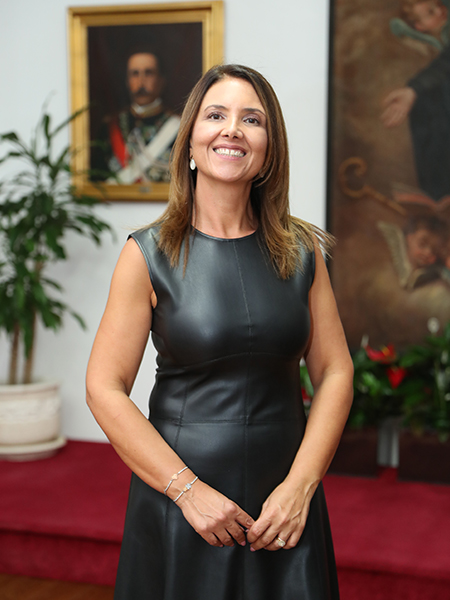
As the end of our time together approached, I asked Dr Carla what the best thing about working at the refúgio is. “I work with amazing colleagues; they’re very flexible and committed. It’s also a privilege to learn from Dr Luís Villas-Boas. As for the best thing, you can be having a bad day working on some kind of administrative issue and then, through an open window, you catch the sound of children laughing. It makes it all worthwhile.”
Dr Luís Villas-Boas is one of Portugal’s leading experts in childcare. A former army colonel, he gained a degree in clinical psychology at Lisbon University before specialising in child protection. In 1985, he took over the running of Refúgio Aboim Ascensão. In 1992, his work was recognised by Princess Margaret, the Countess of Snowdon, who awarded him with the title of Honorary Member of the National Society for the Prevention of Cruelty to Children. In 1998, he was recognised with the (Princess) Diana Award, for his outstanding contribution to children’s services. In 2021, President Marcelo Rebelo de Sousa designated him a Great Official of the Order of Liberty.
